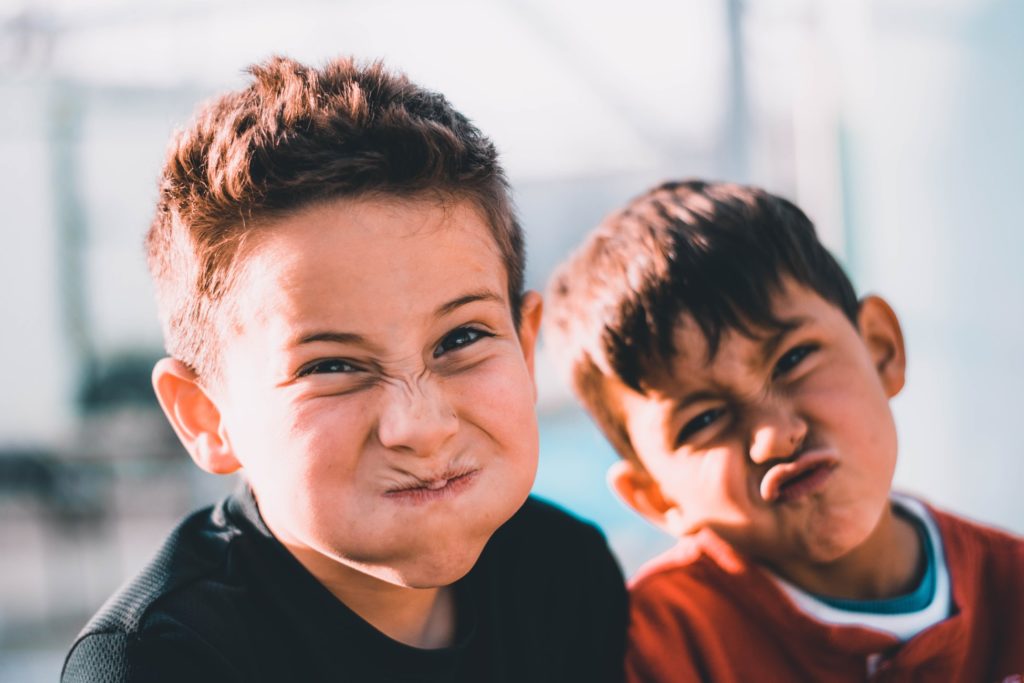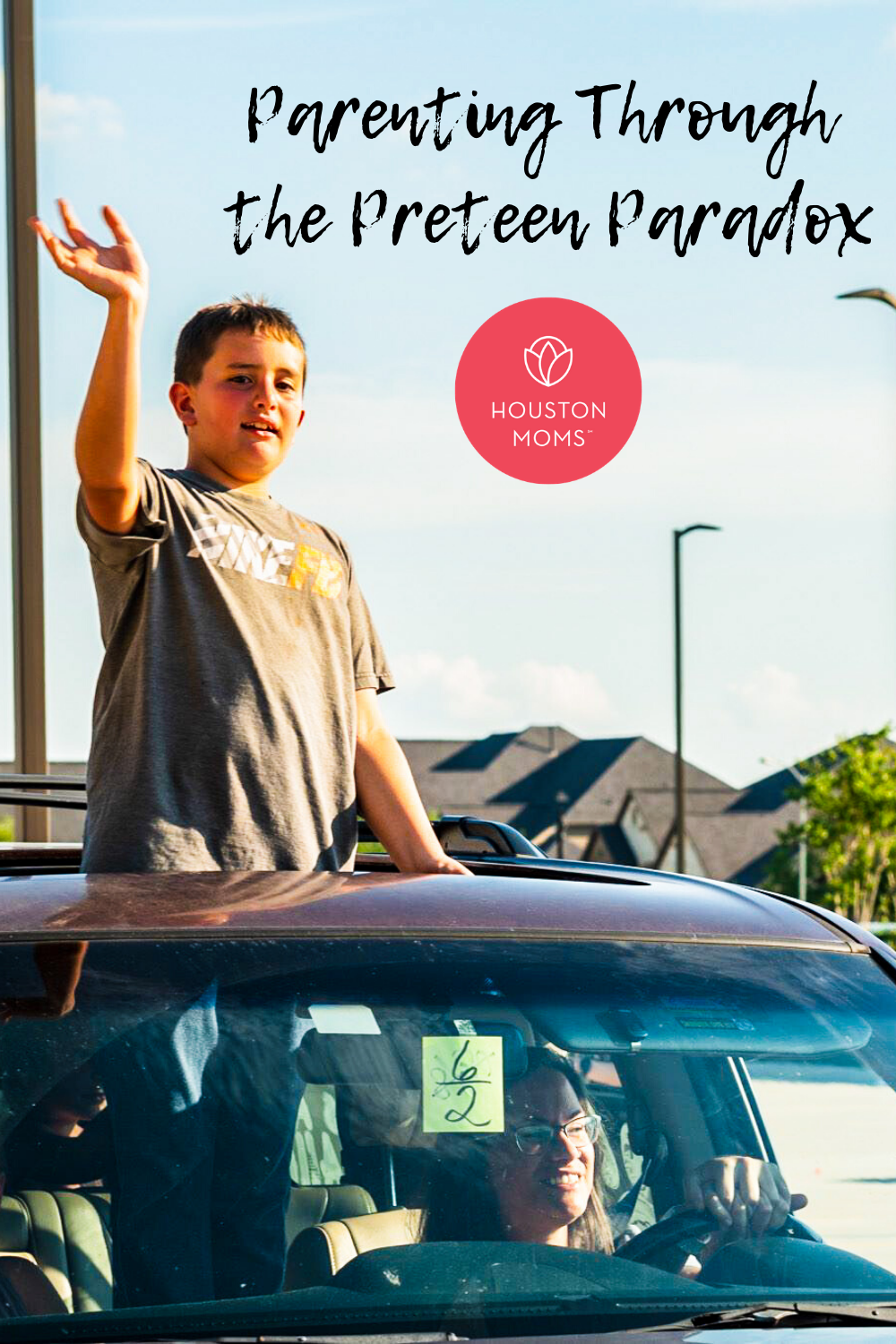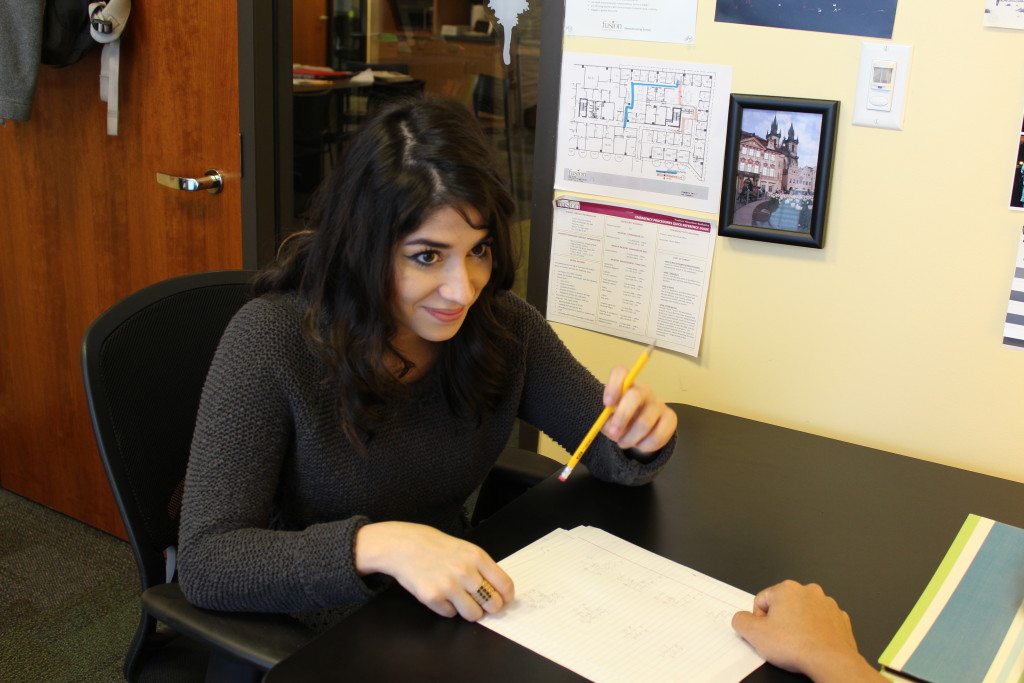What a week it’s been, what a crazy time to be alive. We did it, the 5th grade car parade. Here he is, friends, in all his 5th grade preteen graduate glory. Ear to ear smile, elbow-elbow-wrist-wrist wave, beaming like a Grand Marshal and soaking in the revel of his celebration. An era has ended and the journey into middle school glistens on a not-too-far-off horizon, beckoning our new 11-year-old to set sail. If only every day was as sunshiny and carefree as today.

Do you remember what it was like going into middle school? I have these vague, spotty memories and I’m convinced that the moments lost are indicative of my brain’s defenses in high gear. Why? Because, y’all, in the midst of a fun family discussion about going to middle school, I pulled out my 5th and 6th grade yearbooks and {Lord, have mercy} I was an awkward preteen.
Weren’t we all, though? Think about it… being a preteen means being a living paradox, stuck in the middle of two worlds. It’s no wonder we’re all awkward at that age! And being a parent of a preteen means navigating these two worlds with a foot in each while keeping in mind that as often as you want to ask your kid, “What is going on with you lately?” they are probably wondering the same thing.
From Childhood to Adolescence

Before I go any further, let me iterate what I mean by preteen. There is not a clearly defined age here, but for the purpose of this conversation, we can consider a child who has begun the hormonal and developmental changes from childhood to adolescence a preteen, typically anyone from the age 10-12 years old. Often times we look for changes in physical development to signal the transition, but the changes our children undergo in this time are not limited to the body but also occur in cognitive, emotional, and social domains. A child may not physically look like a teenager, but may begin thinking like one, seeing the world around them in a different light, and engaging with others on a deeper level. Other times a child looks like a teenager, but their brains haven’t quite gotten there yet. This makes for a joyfully confusing time for children and the parents who walk beside them!
As a person who works with kids full time, I see a wide spectrum of preteen personalities. I see some preteens playing with dolls and toys and others seeking relationships and social media followers, and the funny thing is – this is not static. One minute your preteen may seems so grown up and the next you see your baby again. For my son, this looks like deep conversations and tough questions, then full on dramatic enactments of Pokémon battles. It’s a mixed bag! Our preteens are caught in between the realms of childhood and adolescence, and as fluid as they are in the transition, so must our responses be to their behavior, joys, and struggles.
Changing Brains
Cognitively, a preteen brain is in the middle of thinking in simple, concrete ways, and complex, abstract ways. They are learning to ask more questions and process answers in a thoughtful way. This can be tough to navigate as a parent because acceptance of simple ways we explain things to our children and the finite responses we give {e.g. “Because I said so”} are challenged. But it also provides really cool opportunities to connect with your kid in a whole new way and to be a catalyst for their growth.
I have learned that when conversations start to become more complex, the best way that I can help my kid process is not to give an intricate and well-versed answer, but to simply say, “Well, what do you think about that?” These new mental processes can be overwhelming for some, and it is invaluable to provide a space to let them process out loud with you. In other words, this is a time when it is more important to listen instead of making sure your voice is heard. Share appropriately, but don’t overtake the conversation with your responses.
Prioritizing Friendships

Relationally, friendships take on whole new level of priority and importance. Preteens begin to realize that not all friendships are equal. Friends become best friends, and they may wonder if it is ok to not like everyone in their class. Awkward moments become crises as the increasingly self-absorbed preteen wonders if the question they asked was stupid, if everyone is staring at the pimple on their forehead, or if anyone noticed that they changed out in the stall instead of by the locker during gym class. Most preteens want to know: Do people like me? Do I have friends? And we may see our sweet kiddo bend and change as try their very hardest to be accepted by as many people as possible, and in the process answer the question: Who am I?
A Roller Coaster of Emotions

Emotionally and morally, we may be blindsided by the change in our children. Remember your perfect angel? The one who never talked back, always polite and respectful, even keel, and fairly predictable? Yeah, I never had one of those either, but for those of you who do – don’t be surprised when you start to see some tumultuous waters. The fun thing about the preteen years is that puberty adds all the lively hormones to the mix and, frankly, makes your kids go bonkers. Kids are beginning to learn that the world isn’t as cut and dried as they had believed it to be, and the circumstances take a bigger toll on emotional and moral well-being.
This is a time for you to speak truth, breathe life into your child, and affirm their personal journey in the process. We may think that something they experience is no big deal, but to them it is the biggest deal. Again, listening plays a critical role here. Try asking, “How does that make you feel?” Letting your child have a voice without minimalizing their feelings and helping them process will help them to develop positive self-esteem and self-efficacy.
Parenting through the preteen paradox is not for the faint of heart, but then again, neither is parenting in general! My encouragement to you is that you do not need to have this all figured out. Embrace this time as a learning journey for both you and your child and allow this transition to grow you both in grace and love for yourselves and the people around you. Just as any skill requires patience and practice, so does learning to ride the waves of “preteendom”. Happy sailing, parents! You got this!















